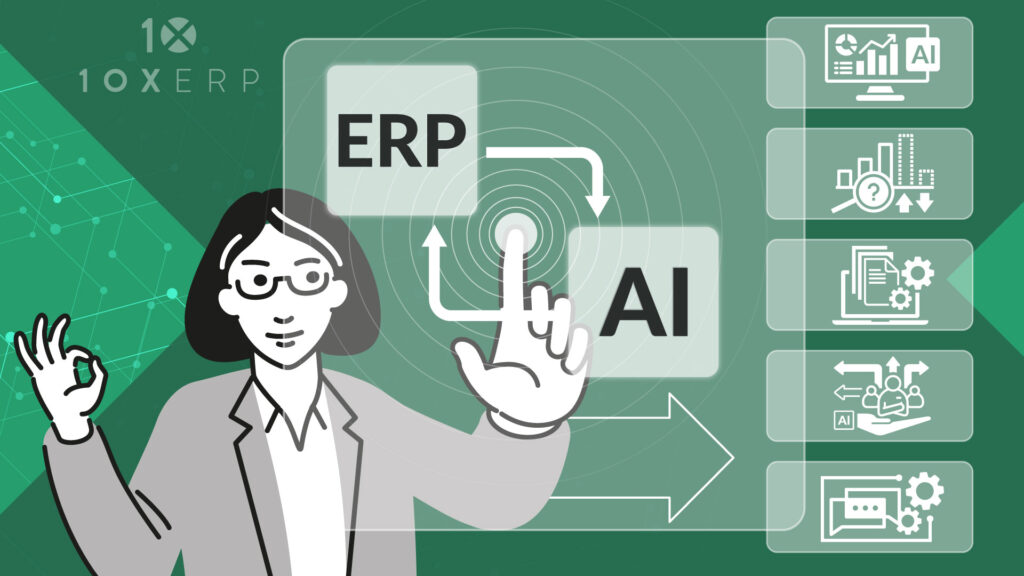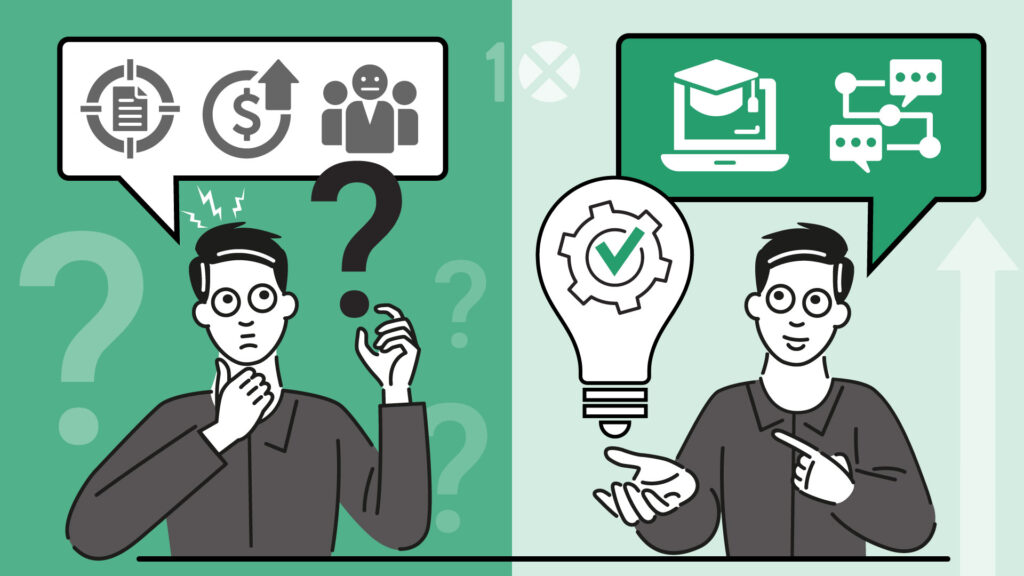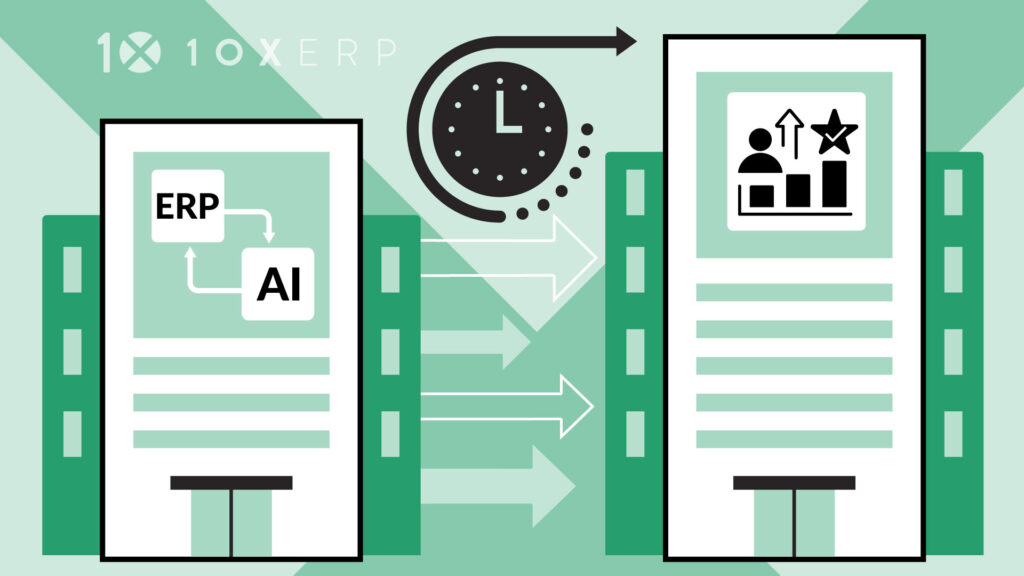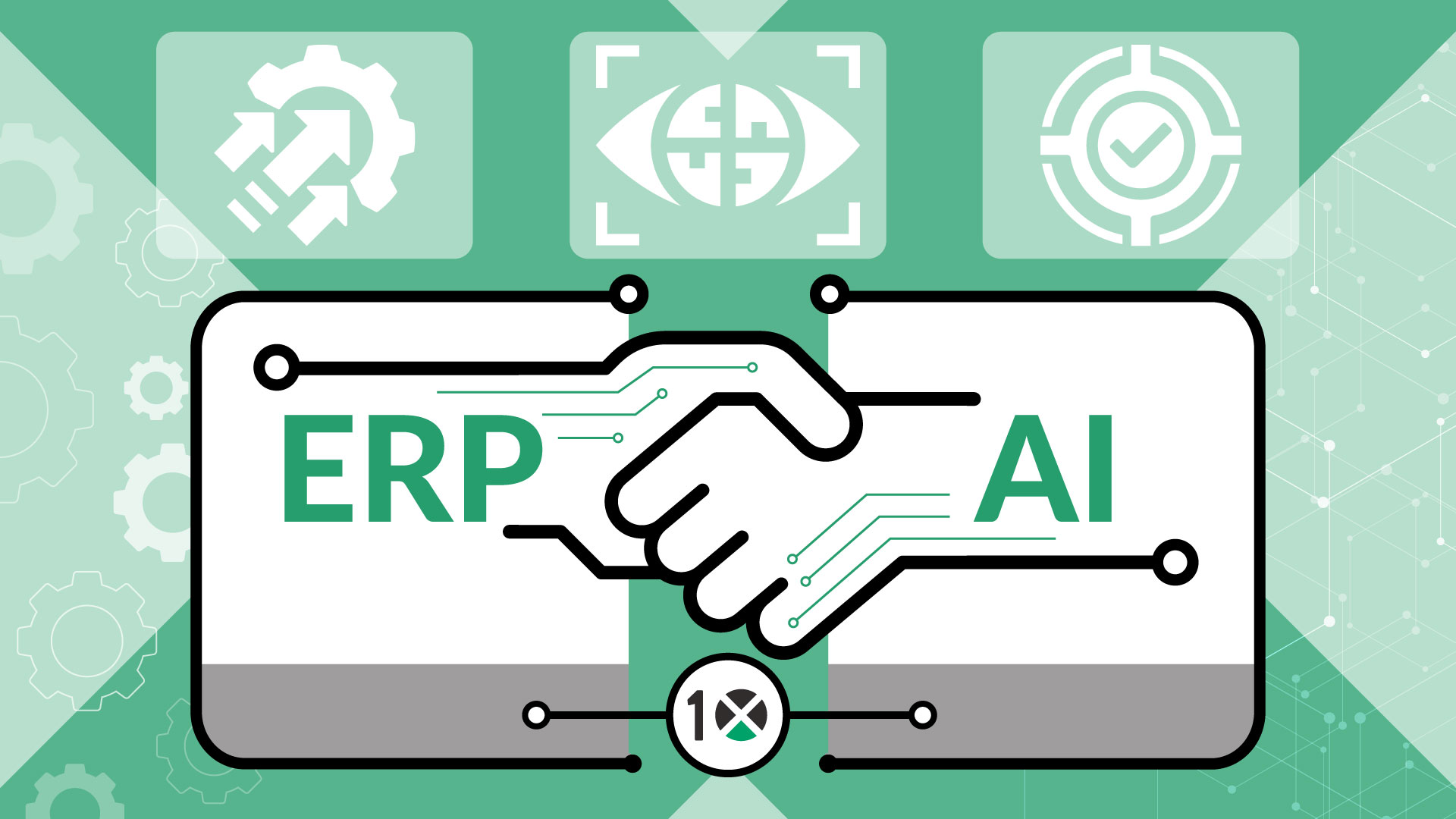Summary
- Integrating AI into ERP systems transforms decision-making by enabling real-time data analysis, predictive insights, and automation that go beyond traditional ERP capabilities.
- AI-powered ERPs improve operational efficiency across industries by forecasting trends, streamlining workflows, and enhancing user accessibility through tools like natural language processing.
- Despite challenges like data quality, implementation costs, and user adoption, the future of ERP lies in its synergy with evolving AI technologies, driving smarter and more agile business strategies.
The fusion of Enterprise Resource Planning (ERP) systems and Artificial Intelligence (AI) has emerged as a game-changer. As businesses strive to optimize operations, minimize costs, and stay ahead of the competition, the role of AI in enhancing ERP decision-making capabilities cannot be overstated. This synergy unlocks new dimensions of efficiency, accuracy, and strategic insight that traditional ERP systems alone could never achieve.
The Evolution of ERP Systems
ERP systems have long been the backbone of organizational operations, providing a centralized platform to manage critical business processes such as inventory, finance, human resources, and supply chain management. However, traditional ERP systems often rely on static data inputs and predefined workflows, limiting their ability to adapt to rapidly changing business environments.
Enter AI: with its ability to analyze vast amounts of data, identify patterns, and make predictions, AI breathes new life into ERP systems. By integrating AI, businesses can transition from reactive decision-making to proactive and predictive strategies, allowing them to anticipate challenges and seize opportunities with unprecedented agility.

The Role of AI in Enhancing ERP Decision-Making
- Data Analysis and Insights AI-powered ERP systems excel at analyzing massive datasets in real time. Through advanced machine learning algorithms, these systems can identify patterns, correlations, and anomalies that would otherwise go unnoticed. For instance, an AI-enhanced ERP system can predict inventory shortages based on historical trends and current demand, enabling businesses to restock proactively and avoid disruptions.
- Predictive Analytics Predictive analytics is one of the most powerful contributions AI brings to ERP. By forecasting future trends, such as sales projections or market demand, businesses can make informed decisions about resource allocation, production planning, and marketing strategies. This foresight empowers companies to act strategically rather than reacting to past events.
- Automated Processes AI enables ERP systems to automate repetitive and time-consuming tasks. For example, accounts payable processes can be streamlined through AI-powered document recognition, which automatically extracts relevant information from invoices and matches it with purchase orders. This reduces manual errors and frees up employees to focus on higher-value tasks.
- Enhanced Decision Support Decision-making in complex business scenarios often involves numerous variables and uncertainties. AI enhances ERP decision support by simulating various scenarios and recommending optimal courses of action. For example, in supply chain management, AI can analyze factors such as supplier reliability, transportation costs, and lead times to suggest the best procurement strategies.
- Natural Language Processing (NLP) allows users to interact with ERP systems using conversational language. Instead of navigating through complex menus, employees can simply ask questions or give commands, such as “What is the current inventory level of product X?” or “Generate a sales report for the last quarter.” This not only enhances user experience but also makes the system more accessible to non-technical staff.
Real-World Applications
The integration of AI into ERP systems is no longer a futuristic concept—it’s already transforming industries. In manufacturing, AI-powered ERP systems monitor production lines in real time, identifying inefficiencies and predicting equipment maintenance needs before breakdowns occur. In the retail sector, AI is being used to analyze customer behavior and optimize inventory levels, ensuring that popular products are always in stock while minimizing excess inventory. Meanwhile, in healthcare, AI-enhanced ERPs assist in resource planning, patient scheduling, and inventory management for critical supplies, improving both patient care and operational efficiency. These applications demonstrate the transformative potential of combining AI with ERP across various industries.

Challenges and Considerations
While the benefits of integrating AI with ERP are undeniable, businesses must navigate several challenges to fully realize its potential. The effectiveness of AI algorithms hinges on the quality and accuracy of the data fed into them. Poor data can result in incorrect insights and flawed decisions. Additionally, the costs associated with integrating AI within existing ERP systems can be significant, requiring careful planning and execution to ensure a smooth transition. Finally, user adoption poses another challenge, as employees may resist adopting new AI-driven workflows due to unfamiliarity or fears of job displacement. Addressing these concerns through effective training and communication is essential to fostering acceptance and maximizing the benefits of AI-enhanced ERP systems.

The Future of ERP and AI
As AI technologies advance, their integration with ERP systems will become even more seamless and impactful. Emerging technologies like generative AI, advanced robotics, and Internet of Things (IoT) devices will further expand ERP systems’ capabilities, enabling businesses to operate with unmatched precision and insight.
Ultimately, the synergy between ERP and AI represents a transformative shift in how businesses approach decision-making. By leveraging the power of AI, companies can unlock new levels of efficiency, agility, and competitiveness, ensuring they remain at the forefront of their industries in an ever-evolving market.
In conclusion, AI isn’t just enhancing ERP systems; it’s redefining them. Businesses that embrace this synergy today are setting themselves up for success tomorrow, equipped with the tools to make smarter, faster, and more strategic decisions.
